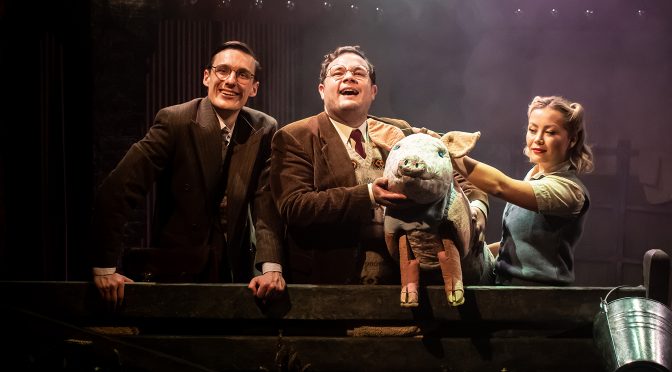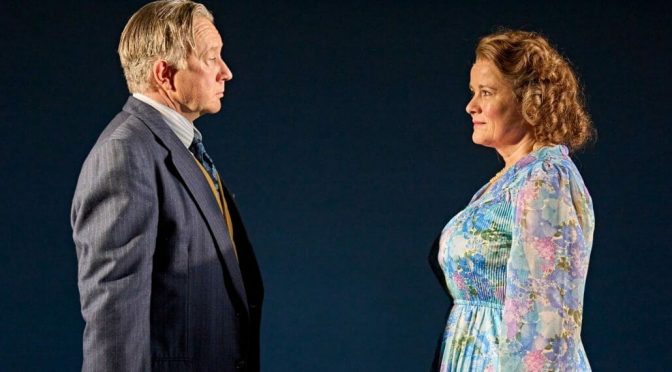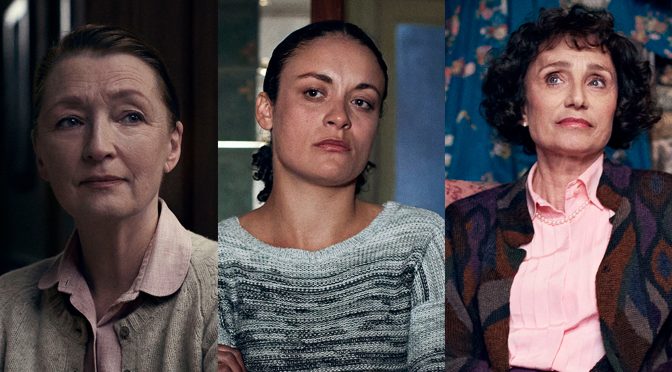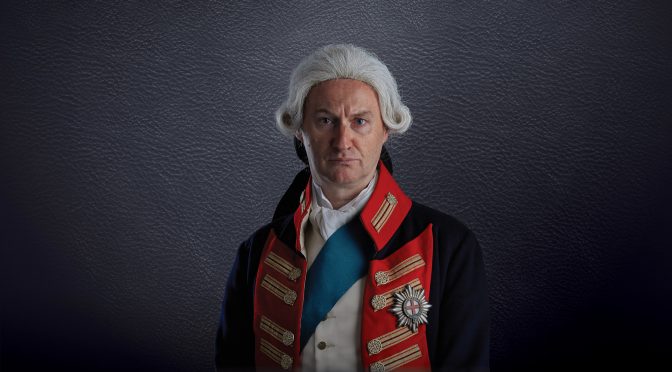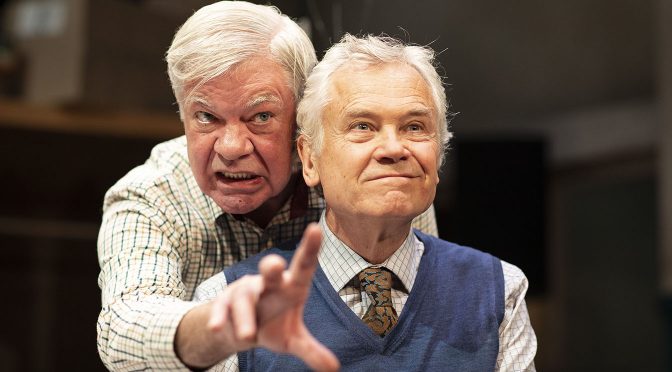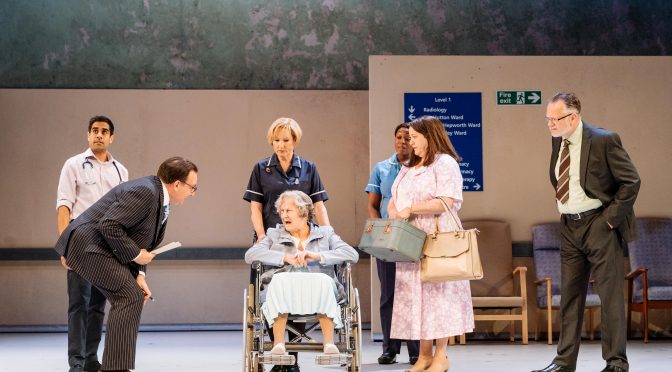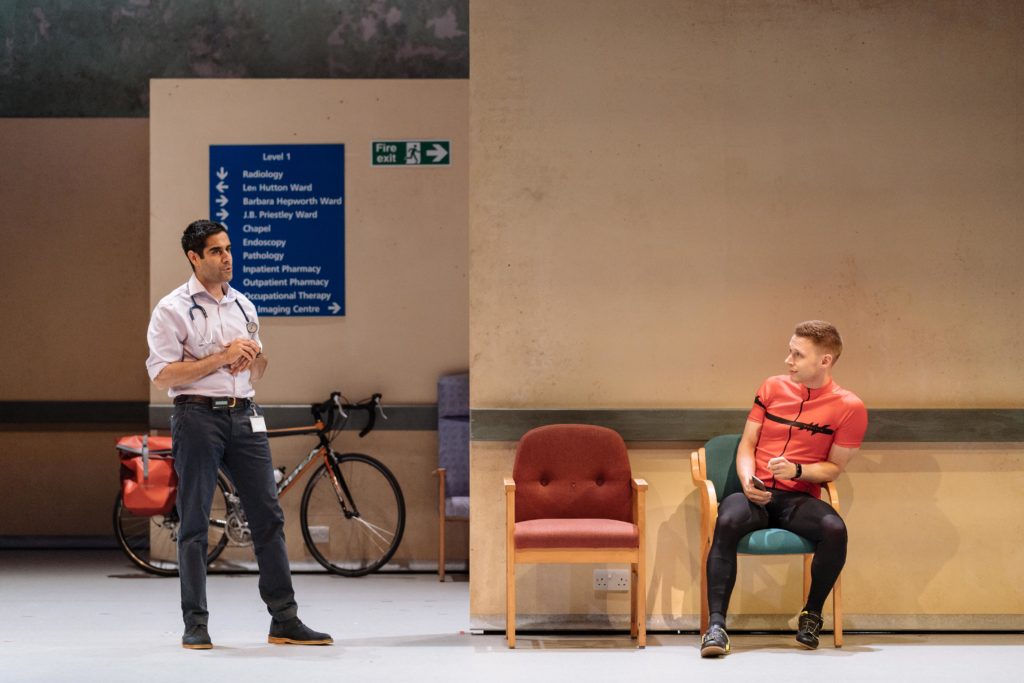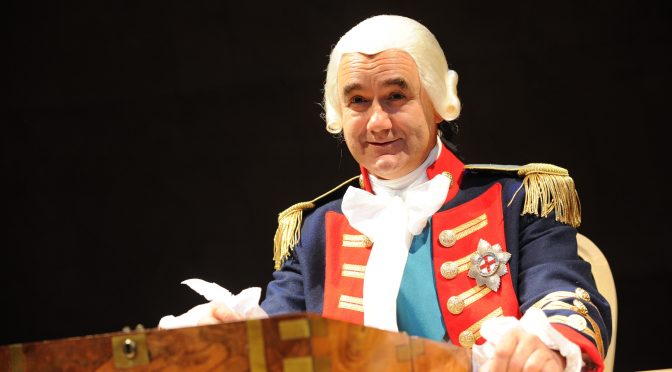There’s a big heart and a lot that’s smart behind this 2011 musical from George Stiles and Anthony Drewe. The story, based on Alan Bennett’s A Private Function, is full of quirky humour and quaint touches. But the strength of this revival comes from director Sasha Regan allowing space for quiet; Regan makes room for simple pleasures and tender moments.
The story has deliberately silly touches – it’s about a chiropodist and his wife stealing a pig destined to be slaughtered to celebrate a royal marriage…so lots of scope there. Add a mother-in-law, flatulence, and Spam and it’s no wonder there are so many laughs. It all leads to some strong and very funny lyrics. And there’s fun choreography from Kasper Cornish that includes sausages.
Although a period piece the show isn’t trapped in its 1947 setting. The date provides humour, and Reuben Speed’s costume design is good, but concerns about the state of the nation are perennial. Poking fun at patriotism gives the piece some meat.
The score doesn’t quite match the standard of the words but the music is entertaining and well structured. Characterisation is another strength that Regan emphasises. Betty Blue Eyes has a collection of strong parts that the cast work hard with: both Jonny Weston and George Dawes stand out with more than one role. And the show’s villain (a government meat inspector) proves a gift for David Pendlebury.
The leads roles of Joyce and Gilbert Chilvers are ambitious tasks for Amelia Atherton and Sam Kipling who should be proud of their performances. The Chilvers’ marriage is the production’s focus as the couple battle against their own sense of inferiority in the face of class prejudice and rationing. Atherton has strong comedy skills in her matriarchal role and lands a lot of laughs while making sure the Joyce’s snobbery doesn’t alienate an audience.
Joyce has a lesson to learn about the kind of man her husband really is – a topic that is treated tenderly – since Gilbert is an unusual hero. Pushing the character past simply being endearing is the challenge and, with a strong voice and a tear in his eye, Kipling succeeds. This gentle man stands in contrast to brash entitlement and suggests a different view of masculinity and British identity. Big claims and questions might not be what you expect from a show about a roast dinner…and that surprise makes the show crackle.
Until 22 April 2023
Photo by Michaela Walshe

